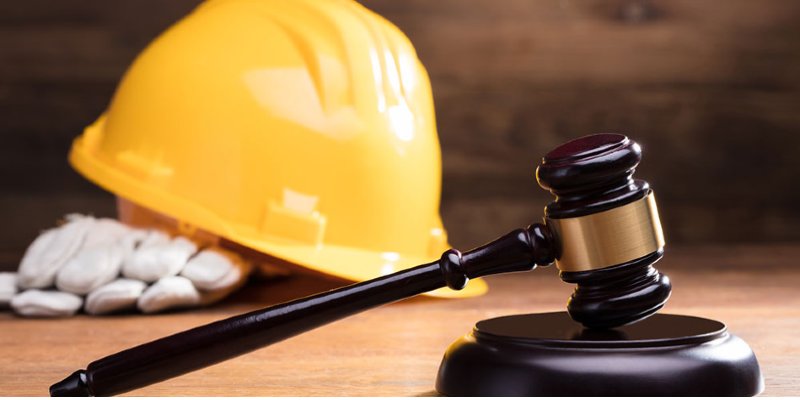Understanding the basics of building and construction law
Building and construction law is a vital component of the construction industry in Sydney. It governs all aspects of building projects, from the initial planning stages through to final completion. This legal framework ensures that builders, contractors, and developers adhere to the required standards, protecting both the public and their teams. Understanding these basics is essential for anyone involved in the construction process.
The importance of legal knowledge in the construction industry
For builders, having a solid grasp of legal principles is not just beneficial—it’s essential. The construction landscape is fraught with regulations and compliance issues. Without proper legal knowledge, builders can unwittingly expose themselves to potential lawsuits, project delays, and significant financial losses. A proactive approach to understanding legal requirements can save time, money, and stress in the long run.
Legal knowledge also enhances a builder’s credibility. Clients are more likely to trust a builder who appreciates the intricacies of their legal obligations. Being able to navigate complexities not only instils confidence but can also lead to securing more contracts and building a robust reputation in the industry.
Key legal terms every builder should know
There are several legal terms that every builder needs to familiarise themselves with. Terms such as ‘negligence‘, ‘breach of contract’, and ‘indemnity’ are pivotal in understanding one’s rights and obligations. Each term carries significant legal weight and implications, potentially influencing the outcome of disputes or legal challenges. Familiarity with these terms will empower builders to engage more effectively with legal documents and processes.
Furthermore, understanding contractual language is crucial. Contracts are the backbone of any building project, outlining the expectations and responsibilities of all parties involved. A builder that can read and interpret contracts accurately is in a much stronger position to advocate for their interests and mitigate risks.
Navigating through the planning and approval process
The planning and approval process in construction can be complex. It involves various stages where approvals must be secured from local councils and other regulatory bodies. Understanding this process is crucial for builders to ensure that their projects proceed smoothly and legally.
Understanding the role of local councils
Local councils play a significant role in the planning and approval process. They assess development applications, ensuring compliance with local laws and zoning regulations. Builders need to develop good relationships with these councils to facilitate smoother approvals.
Councils look at factors such as environmental impact, community concerns, and planning regulations. Builders should be prepared to engage with councils early in the project to address any potential issues before they escalate.
The legalities of planning and building approvals
Building lawyer Sydney approvals are not merely bureaucratic hurdles; they serve to protect both the public and the builder. Legal requirements surrounding approvals can vary significantly, depending on project size and scope. Builders need to be aware of these regulations to avoid delays.
Additionally, understanding the appeal processes can be critical. If an approval is denied, builders must know their rights to challenge that decision. Engaging a town planner or legal advisor during this phase can provide invaluable support.
The legal aspects of construction contracts
Construction contracts form the foundation of any building project. These documents outline the specifics of the project, responsibilities, schedules, and payment terms. Understanding the legal aspects of these contracts is vital for builders to safeguard their interests.
Essential elements of a construction contract
A robust construction contract should include essential elements such as definitions of parties, project scope, timelines, and payment structures. It should also address aspects like change orders, dispute resolution mechanisms, and termination clauses.

Each of these components has legal implications, and builders should review contracts carefully before signing. Engaging a legal professional to scrutinise contracts can prevent misunderstandings and protect against future disputes.
Common legal disputes in construction contracts
Disputes can arise for various reasons, including delays in completion, payment issues, or breaches of contract terms. Understanding common disputes can help builders identify and address potential issues before they escalate.
Legal avenues for resolution can range from negotiations to mediation, or even litigation in more severe cases. Being prepared to manage these disputes can save valuable time and money throughout the construction process.
Occupational health and safety regulations in construction
Occupational health and safety (OHS) regulations are paramount in ensuring that construction sites remain safe for all workers. Builders have a legal obligation to uphold these regulations to prevent accidents and injuries.
The builder’s responsibility for safety on site
Builders must take responsibility for maintaining a safe working environment. This includes conducting risk assessments, providing safety training, and ensuring that all construction activities comply with relevant OHS standards. Failing to uphold these responsibilities can lead to legal consequences and harm to workers.
Moreover, fostering a culture of safety can boost employee morale and productivity. Workers who feel safe are more likely to perform their duties effectively and report hazards without fear.
Consequences of non-compliance with safety regulations
Non-compliance with safety regulations can have severe repercussions. This could range from financial penalties to criminal charges if negligence results in serious injury or death. Builders must understand the gravity of these regulations and prioritise safety as a fundamental aspect of their operations.
Additionally, the reputational damage that comes from a safety incident can have a long-lasting impact on a builder’s business, affecting future opportunities and contracts.
Resolving construction disputes legally
Disputes in construction are not uncommon, but knowing how to resolve them legally is crucial for maintaining project momentum and relationships. Understandably, builders may find disputes stressful, but there are structured methods available to handle these situations.
The role of mediation in construction disputes
Mediation is often the first step in resolving conflicts amicably. This process involves a neutral third party who helps facilitate discussions between disputing parties. Mediation can be less adversarial and more cost-effective compared to litigation, making it a preferred choice for many builders.

Successful mediation not only resolves the current dispute but can also preserve working relationships, which is invaluable in an industry that relies heavily on collaboration.
Taking a construction dispute to court
If mediation fails, a builder may have no choice but to take the dispute to court. Litigation can be drawn out, expensive, and uncertain. Hence, it is typically seen as a last resort. Understanding the litigation process, and having legal representation can help builders navigate this challenging terrain.
In conclusion, while building and construction law in Sydney can seem daunting, comprehending its core elements helps builders safeguard their businesses and ensure project success. Investing in legal knowledge is an investment in their future. By taking a proactive approach, builders can navigate the complexities of construction law and build successful projects.
See Also: What is a class action lawsuit? understanding group litigation.

